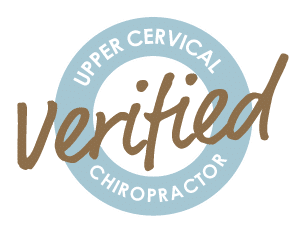
If you've ever experienced discomfort in your lower back or a sharp pain shooting down your leg, you're not alone. Millions of people face these symptoms daily, in the form of low back pain and sciatica. But did you know that stress can be a significant contributor to these conditions?
Understanding Low Back Pain
Low back pain refers to discomfort in the lower back area, which can range from a dull, constant ache to a sudden, sharp sensation that leaves you incapacitated. It's a common ailment, and it's one of the leading reasons why people miss work or visit their healthcare provider.
The causes of low back pain are numerous. They include mechanical issues such as sprains or strains, degenerative issues like disc diseases, and skeletal irregularities like scoliosis.
What is Sciatica?
Sciatica is a condition that results from irritation of the sciatic nerve, the longest nerve in your body that runs from your lower back down to your feet. When this nerve is irritated, it causes pain, numbness, or tingling in the lower back, buttocks, and leg along the path of the nerve.
Like low back pain, sciatica can be caused by a variety of physical factors, such as herniated discs, lumbar spinal stenosis, or spondylolisthesis.
The Connection Between Stress, Low Back Pain, and Sciatica
You might be surprised to learn that stress, low back pain, and sciatica are all interconnected. When you're stressed, your body responds by tensing up your muscles, including those in your lower back. This tension can lead to low back pain and, in some cases, can also irritate the sciatic nerve, leading to sciatica.
The relationship between these three factors is cyclical. Stress can lead to low back pain and sciatica, and the discomfort and disability caused by these conditions can, in turn, lead to more stress, creating a vicious cycle.
Why You Should Consider Chiropractic Care for Low Back Pain and Sciatica
Given the connection between stress, low back pain, and sciatica, an integrated approach to treatment that addresses all these factors is essential. Chiropractic care is a holistic, non-invasive approach to health that focuses on the body's innate ability to heal itself. It involves the use of spinal adjustments to correct misalignments in the spine and improve the function of the nervous system.
Chiropractic care can help by relieving pressure on the affected nerves, reducing inflammation, and improving flexibility. But what makes chiropractic care particularly effective is that it doesn't just address the physical symptoms. It also helps manage stress, which is often at the root of these conditions.
Chiropractic adjustments stimulate the nervous system, which can help to reduce the body's stress response. This can help to break the cycle of stress, low back pain, and sciatica. Additionally, chiropractors also provide advice on lifestyle changes, such as exercise and nutrition, that can help manage stress and improve overall health.
Take the Next Step Towards Pain Relief Today
Low back pain, sciatica, and stress are intimately connected. Stress can lead to these conditions, and these conditions can, in turn, lead to more stress, creating a vicious cycle. But the good news is that you can break this cycle. Chiropractic care offers a holistic approach to managing these conditions. It not only helps relieve the physical symptoms of low back pain and sciatica but also addresses the underlying stress that often contributes to these conditions.
If you're dealing with low back pain or sciatica, or if you're simply feeling the weight of stress, consult with our professionals at Compassion Chiropractic in our Brooklyn, New York, office. Please call (347) 425-9929 to schedule an appointment today.








